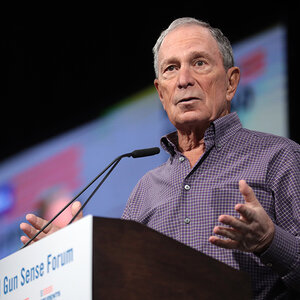New York City Mayor More Philanthropic Since Taking Office
Even before taking office in 2001, New York City mayor Michael R. Bloomberg had donated hundreds of millions of dollars to a wide variety of charitable causes. But in the four years since his election, the breadth of his philanthropy has expanded dramatically, the New York Times reports.
Reeling from cuts in city and state funding, many of the city's community and cultural organizations are as likely to be beneficiaries of Bloomberg's charitable giving as are medical centers in Baltimore or elite educational institutions such as Harvard. But as Bloomberg gears up for a re-election campaign, the impact of his charitable giving — a total of about $140 million to more than eight hundred organizations, a growing number of them local, in 2004 alone — is emerging as a potentially formidable weapon.
"It's an unusual picture: a mayor whose generosity we sincerely appreciate as a person, countered by cuts," said Tom Finkelpearl, executive director of the Queens Museum of Art, which received $100,000 last year through Bloomberg's ostensibly anonymous gift to the Carnegie Corporation of New York. "There's no question there's a different dynamic."
For their part, aides insist Bloomberg's personal philanthropy is not driven by politics. And they stress that most of his donations are made anonymously — though the fact that he's the source of a gift often seems to be an open secret.
According to a Bloomberg spokesman, the mayor's generosity while in office is consistent with his lifelong grounding in philanthropy. Bloomberg has often said that his parents gave what they could, typically $25 or $50, to causes such as the local parent-teacher association, their synagogue, and the NAACP. And while he has established trusts for his two daughters, he has said he hopes to give much more of his wealth to charitable causes before he dies. "He's not looking for attention," said Edward Skyler, the mayor's communications director.
Still, over the last few years the pool of recipients of the mayor's generosity has expanded geographically and ethnically, in a pattern that suggests a greater sensitivity to the needs of the city's smaller, under-resourced institutions — and, the Times notes, cannot help but have an effect on the mayor's political fortunes. Like anybody else, added Skyler, "the mayor expects to have the support of his friends. But the mayor never holds his personal philanthropy over their heads."






